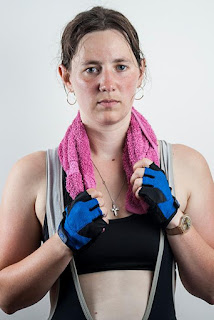I learned some information and this information triggered a memory that I do not often bring to the forefront of my mind. An event that I had not processed. Moments of incredible cruelty I had unintentionally repressed. In the retrospect of the present I can see that the pictures tell the story I did not want to hear and am being forced to confront now. After this happened there is a period of time for which there are relatively few pictures taken of me where I am looking directly at the camera.
 |
| I was not able to find any pictures where I was looking at the camera. |
Once brought forward, I was blindsided. Violent nightmares came. Horrendous flashbacks, followed by being completely zoned out and out of touch with reality. I felt confused and disoriented. Why was I struggling with something that had happened long ago? Why was I first making these connections now? Had I not healed already? My life was so different from the time of the events and the years that followed.
 |
| Taken years ago and around the time I first knew everything was going to be okay. |
I struggled with feeling mentally weak. I could not will the flashbacks away. I struggled to pull myself to be back in touch with reality. I was embarssed to be dealing with something so far back in my past. I was unable to make progress on my professional goals. Instead, I was mired in a battle with my mind and the memories in contained.
 |
| One of my favorite pictures my husband has taken of me. It's a little old now and I am presently working on getting back to that condition. I wish I felt this powerful all the time. |
I know that this may happen again, but next time it will not surprise me. I will be ready. If I am fortunate, this may be the only time.
I contemplated writing this piece as it is very personal. I decided to come forward for a few reasons. One, by talking about this, it loses its claim over me. I also lose the feelings of shame and weakness when I am honest about my struggles. Two, I want to shed light on another issue which is not often talked about. Three, this is part of my previous post in that I want to continue the discussion of how one manages a stressful career while balancing mental health. I do not believe that this experience that I have shared is a good example of what to do, only what I did to survive it.
On a further note, I am not ready to come publically forward with what happened. I am working on co-authoring a piece that will explain my experience in more detail as well as what can be done to prevent other stories like mine.
